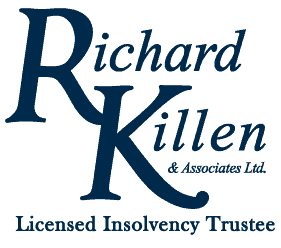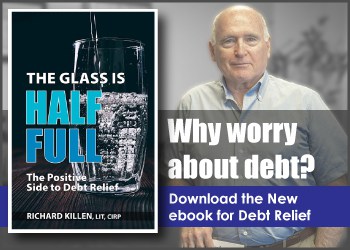Debt Counselors Toronto and Consumer Credit

Many, many times in the years that I have been a Licensed Insolvency Trustee in Toronto I have met people who had very little understanding of how credit works, especially consumer credit. In fact, when I started my trustee business one of the first persons who came to work for me had almost zero knowledge of how credit worked. Having had years of experience in the consumer credit field, I found that interesting. But as I later discovered, this was a much more common situation than I thought. I guess that’s where Financial Debt Counselling in Toronto, or elsewhere, come into the picture.
For some reason Debt Counselling as a preventative measure is not provided in high schools, or anywhere else that I can see. But since debt, or at least consumer debt, or consumer credit, is such a prominent part of modern society, maybe we should all try to understand it a bit better.
Historically consumer credit is a rather recent innovation. Before the Second World War it basically didn’t exist. In the 1920s and 1930s it was pretty hard for the ordinary working person to get a loan for anything. A person could perhaps get a mortgage loan to buy a house, with at least a 25% down-payment. But if a family wanted to buy a washing machine they either paid cash, or they bought it on the lay-away plan; i.e. they paid a certain amount every week to the appliance store and when they had paid the full price of the machine, the store would deliver it. If a person needed $300 cash he probably went to a pawn shop. It was practically impossible to get a loan from a bank, unless they already had a lot of money, so they probably didn’t need it anyway. A contradiction, I know.
So really, in those days people didn’t need much in the way of Debt Counselling.
But then after WWII was over and the millions of men who had been in uniform returned to normal civilian life and started families and so forth, they found that they needed and wanted all kinds of things, from washing machines to cars. After having made the sacrifices the war had asked of them they were in no mood to wait for the lay-away plan. So, as happens in a free market system, a need presented itself and someone jumped in to fill that need. Presto! Consumer Credit.
Companies like Household Finance and Beneficial Finance decided to take a chance on these ordinary people. Instead of only lending money to people who already had money, these companies saw that it might be good business to lend money to people on the strength of their employment – they had an income. Guess what? They were right. Ordinary working people were able to get what they needed now and paying for it later. The Great Big Consumer Wheel started to turn.
Here’s what I mean. Because I have a job and can afford the monthly payments, HFC lends me $1,000 to buy a 1949 Ford. A whole bunch of other people then benefit from this. The car salesman makes his commission; the truck driver who delivered the car to the dealership gets paid, as does the assembly line worker who makes the car, the people who produced the parts to supply the assembly line, the people providing the raw materials from which the parts are made, the designer of the car, the advertising guy who comes up with ad that entices me to buy it, and so on, and so on. They all have a job and an income because of HFC lent me the $1,000. And because they get paid they can could go out and finance a car of their own and keep the wheel turning. They also have a new car of their own.
70 years down the line here we are – a consumer credit society – like it or lump it.
But all that is the good side of this equation; when things go right. It is not too much of a stretch to say that this system allows people like us to enjoy the highest standard of living anyone has ever enjoyed in the history of the world. (I speak here of material standards.) Some of us who have been around awhile can remember what things were like 40 or 50 years ago and can compare that to what we enjoy today. The difference is huge and is due in large part to the practical effect of consumer finance.
But things are never universally wonderful, are they? What happens if a person can’t meet the payments that this wonderful system is built on? What then? Well, that’s when we enter the world of the Debt Counsellor. Consumer Credit, as we just discussed, can be a good thing – if properly handled. But if you don’t know how to handle it. Or if unpleasant changes happen in our life that compromises our ability to keep up. That’s when a Debt Counsellor can help.
When it comes to Debt Counselling there are different kinds of help that can be given. At the basic level, there are straight out budgeting practices that can be learned. How to keep track of our money: the coming and the going out. Always good to know, and very important if they can be applied in time to keep things from going astray.
Then there are habits and disciplines that can be learned which can go a long way towards putting those budgeting methods to good effect, as well as to put us in a position to take better advantage of the credit that might be available to us in the future.
And then there is the kind of debt Counselling that assists in rectifying an already bad situation, when applied in conjunction with legal solutions such as bankruptcy or a consumer proposal. This, of course is the area that Richard Killen & Associates Ltd., in its capacity of Licensed Insolvency Trustee and certified Debt Counsellor can really help. After all, one of the two main purposes of the Bankruptcy and Insolvency Act is to promote the financial rehabilitation of the individual. It is one thing to deal with the debts themselves. It is something else to get the information, advice and training which can prevent a future recurrence of the same problem. That’s where the Insolvency Debt Counsellor can make a big difference.
The Federal Government licenses an Insolvency Trustee to perform many important tasks designed to benefit either or both the debtor and his creditors. One of the most important of these tasks is to provide the debtor with the best opportunity to learn the things he needs to avoid a repetition of the current problems. Most importantly he can learn the skills and habits which will empower him to take control of his financial life and pave the way to a much more successful financial future.
In its role as a Debt Counsellor Richard Killen & Associates Ltd. provides the kind of assistance that are designed to achieve these goals. Like any other successful counselling, success will primarily depend on what the individual being counselled “brings to the table”, as the phrase goes. No one can make someone else learn something. But, with an open mind and a desire to learn and grow, the information we can provide can make the kind of difference that has a huge effect on a person’s financial future.
So though the term Debt Counsellor can sound pretty generic and bland, in the insolvency process, whether bankruptcy or proposal, the effect of Financial Debt Counselling in Toronto can be the most beneficial of all.
A New Name – Licensed Insolvency Trustee
 The bankruptcy and proposal business is going to have a new player – at least it will appear that way. Since 1920 Trustees have had the title “Trustee in Bankruptcy”. Effective April 1st, 2016, Trustees are going to have a new name. We will be called “Licensed Insolvency Trustees”.
The bankruptcy and proposal business is going to have a new player – at least it will appear that way. Since 1920 Trustees have had the title “Trustee in Bankruptcy”. Effective April 1st, 2016, Trustees are going to have a new name. We will be called “Licensed Insolvency Trustees”.
Actually this change has been coming for some time. Over the past 25 years the insolvency business has changed considerably. Trustees, who used to primarily handle bankruptcies and some business receiverships, have gradually morphed into people who do a lot more than that.
On the corporate side we have become the go-to people for effective restructuring when a company gets into certain kinds of trouble, but does not want to close their doors. This might mean re-organizing via a corporate proposal, or the use of the Company Creditors Arrangement Act, or even informal restructuring and deal-making. In other words as expansive a menu of solutions as the imagination and skills of a Trustee can supply to try to save the business.
On the personal or human side, Trustees have become the go-to people to provide the kind of knowledge an insolvent individual needs to achieve financial rehabilitation.
An insolvent person is by definition a person who can no longer keep all his creditors happy all the time – can’t keep all his debt payments up to date. This is usually disastrous for that person. A Trustee is uniquely placed to be able to provide that person with the tools to solve his problems. These might involve a bankruptcy solution or a consumer proposal in Toronto, or a more informal option. But the real solution will be that the insolvent person will have the chance to re-take control over their affairs. Though a lot of work will still have to be done, at least they can be in charge of doing it.
So the new title, which will be in use immediately, will be Licensed Insolvency Trustee.
Licensed – Because a Trustee must be licensed by the Federal Government, through the Office of The Superintendent of Bankruptcy, to have the authority to perform his duties.
Insolvency – Because the problems facing people today are not those of the past and the solutions and consequences have to be seen in a much more contemporary context. We are no longer necessarily talking about bankruptcy. There is much more to what we do.
Trustee – That stays because it properly reflects what we are – people who act in trust for others. Unlike a lawyer or other professional a Trustee does not work for only one side. A Trustee acts impartially in the interests of all the parties involved. This operates strongly to maintain public confidence in the legal insolvency process.
Hooray for the move forward!
Being Human: Debt relief is just a phone call away
When people come to Richard Killen & Associates for bankruptcy or debt counselling in Toronto, we don’t sit in judgment. It wouldn’t be fair anyway, because most people are their own harshest critics.
These people come to us at one of the worst times of their lives, when their worlds seem to be crashing around them. They feel afraid and guilty. The very act of opening the front door to our office can require an enormous act of will, to confront the bad news.
We sit down with them and listen to their story and ask the right questions. While each person’s situation is unique, and we have probably heard a similar story before, we can give them practical options to solve their problems; whether it is loan consolidation, credit counselling, creditor negotiation, a consumer proposal or even declaring bankruptcy in Toronto. We will let them know the pros and cons of every choice so they can decide what measure or measures suit them best. Their decision, not ours.
But, we will also try to make them understand that there is nothing they need to apologize for – unless it is being human. We humans all make mistakes. So if we are going to make mistakes, all we can do is try to make sure we don’t repeat them. In other words, make sure each mistake is a new one.
There are all kinds of reasons why people find themselves behind the eight ball financially: sickness, job loss, marital troubles, etc. But more often than not these problems have been made worse by their own mistakes, such as letting their spending get away from them and perhaps living beyond their means.
We try to help people see their situation in its proper perspective. We let them know that they are not the first to cope with this problem. Their crisis doesn’t make them bad people and it doesn’t define who they are. If they made mistakes they can also learn from them. In other words, turn a problem into an opportunity. We know this to be true. We’ve seen it happen many times.
Don’t get us wrong. We are Licensed Insolvency Trustees, not social workers or crisis counsellors. We serve a purpose defined and regulated by government and made accountable by law. But, one aspect of the legal process involves insolvency counselling, so we try to make sure that, at the very least, they can use their financial misfortune as a stepping stone to better control their financial future.
We have obligations to every person who walks through our door. Not just to help them find a solution to the problem in front of them, but to come out the other end in the best possible shape. The better they understand their situation with the proper perspective the better chance they have to achieve this goal.
So if you are living with the kind of financial problems we’ve described don’t be afraid to contact us. As we say in our TV ads, a phone call to us can be the most stress-relieving call you ever make. A debt relief program can put you back on the road to financial security sooner than you think.
5 Signs That You Have Too Much Debt And Need Debt Help
 There are lots of different tells that you have that let debt levels get out of control and you should consider getting some debt help. Basically, if you are even asking yourself if this is the case, there’s a good chance you are in trouble and need some financial debt counselling.
There are lots of different tells that you have that let debt levels get out of control and you should consider getting some debt help. Basically, if you are even asking yourself if this is the case, there’s a good chance you are in trouble and need some financial debt counselling.
But see if any of these warning signs resonate with you.
1. You have no money in your savings account
Having money in savings is about creating a nest egg for the future and putting aside funds for emergencies. A tapped-out account is a sign that you are living from paycheque to paycheque, with no cushion for life’s inevitable ups and downs.
2. You’re having trouble paying your bills
You are letting your bills accumulate, getting past their due dates. This will affect your credit rating. Paying only the minimum amount on credit card bills carries the balance to the next billing cycle and makes interest accumulate. If you have to pay your bills with loans from family, friends, credit cards, or cash advance outlets, you have too much debt. And eventually people will start saying no.
3. You’ve been told no for new credit
You’ve been playing the juggling game, applying for new credit to help pay for your debts or lifestyle. But you receive a letter of rejection, explaining that you have a poor credit score, too high a balance, too much credit or no credit history. At times it may seem like there is no end to the amount of credit you can get. But eventually the train does come to a screeching halt as creditors realize that you have become a bad risk.
4. You’re way too stressed
You’re losing sleep over your financial situation. Your work performance is suffering, as is your relationship with friends and family. You’re fearful, depressed and perhaps turning to alcohol or drugs for relief. Worrying about debt can take a terrible toll physically and mentally.
5. You don’t know how much you owe
Basically your head is buried in the ground. You don’t look at bills. You spend without checking your bank balances. You use your credit cards without thought. And you don’t know if you owe $1,000 or $10,000. You’re probably waiting for the axe to fall.
As we said, if you’re worried about debt, then debt is probably a problem. Problems also have solutions. Come to Richard Killen & Associates for a free consultation and get some debt help. We will help you to understand what your options are, so you can replace worry with hope, and debt with a clean balance sheet.
Debt Consultant- Canadian Debt Alert!
 Many more Canadians are tying rocks around their waists and jumping into a sea of debt. If this sounds familiar, it may be time for some financial debt counselling in Toronto.
Many more Canadians are tying rocks around their waists and jumping into a sea of debt. If this sounds familiar, it may be time for some financial debt counselling in Toronto.
According to a report recently released by Statistics Canada, “Changes in debt and assets of Canadian families, 1999 to 2012,” more than a third, of families had a debt-to-income ratio above 2.0 in 2012. In other words, their level of debt was at least twice that of their annual after-tax income. In 1999, that share was 23%.
Such high levels of debt leave many families at the mercy of shifting economic tides, which may include sudden loss of employment, illness, or the skyrocketing cost of borrowing.
According to the Globe and Mail, “The Statscan paper comes as Canada’s debt-to-income ratio has risen further, hitting a record 163.3% in the fourth quarter of last year. The central bank has long cited household debt as a key risk to the economy, though it cut interest rates in January to counter another threat: lower oil prices.”
This Statscan paper looks at changes in debt, assets, and net worth among Canadian families with debt from 1999 to 2012, using selected family characteristics. It also examines the extent to which two key ratios of indebtedness, the debt-to-income ratio, and the debt-to-asset ratio, varied over the period.
Among the paper’s highlights:
- In 2012, the percentage of Canadian families with debt was 71%, up from 67% in 1999. The median debt held by these families was $60,100, up from $36,700 in 1999 (in 2012 constant dollars).
- Between 1999 and 2012, median debt and median assets increased for most types of families, but not equally for all categories of families. Median debt, for instance, increased faster among those in the 35-to-44 age group, among couples with children under 18, and among mortgagees.
- Between 1999 and 2012, the median debt-to-income ratio rose from 0.78 to 1.10, while the median debt-to-asset ratio remained stable, at around 0.25. Families in the 35-to-44 age group witnessed significant increases in both their debt-to-income and debt-to-asset ratios.
- In 2012, 35% of Canadian families had a debt-to-income ratio above 2.0—meaning that their debt was at least twice the level of their annual after-tax income. This compared with 23% of Canadian families in 1999.
- In 2012, 14% of families had consumer debt (i.e., debt other than mortgage debt) that was larger than their annual after-tax family income. In comparison, 8% were facing the same situation in 1999.
If you find yourself in a sink-or-swim position with your family debt load, come to Richard Killen & Associates’ debt consultants for free debt counselling in Canada. A debt advisor will outline your options and their consequences, so you can start swimming in the right direction.
10 Debt Danger Signals
After the expense of the holidays, many of us wonder how much debt is too much. Yes, Canadians are used to carrying record debt loads, but there comes a point where the burden may become too heavy.
Here are 10 danger signs that could reveal your spending is out of control:
1. You are making only minimal payments on your credit card balances as you head towards maxing them out.
2. Even so, you continue to use them for everyday purchases, such as groceries or gas.
3. You are using one credit card to pay off another. The fact that you have more than one or two credit cards is in itself a danger signal.
4. You borrow money to make it from one payday to the next.
5. You miss payments and due dates for bills and loans.
6. Creditors are after you for payment, threaten to sue or repossess your car, furniture or television, or hire a collection agency to recover the money for them.
7. You argue a lot with family about money, or hide your spending habits from them.
8. The size of your debt grows month after month. Or it has grown so large that you are afraid to look at the real total.
9. Extra money earned through overtime, tips or bonuses is relied on as part of your regular monthly income.
10. Thoughts about money and debt crowd out all others and put your life under a cloud.
Although your situation may be dire, it is never hopeless.
If you feel your debt load is becoming too much, come into Richard Killen & Associates for a free assessment. As a federally licensed bankruptcy trustee in Toronto, we can take you through all the possible financial coping strategies – whether it is debt consolidation, negotiating with creditors, a consumer proposal or even a personal bankruptcy – and find out what works best for your particular situation. And you make all the decisions.
After all, we’re talking about your peace of mind, right?
Divorce and Bankruptcy
Divorce in Canada can be complicated when it comes to debt. Divorce can cause bankruptcy and bankruptcy can cause divorce. Study after study show that financial problems can lead to marital breakdown.
Filing for bankruptcy as you go through a divorce, or after, can make both processes more difficult and stressful.
Not off the Hook
If you are separated or divorced and have joint debt, you’re not let off the hook. Both of you are still liable for the money owed. If one of you files for bankruptcy, the creditors can go to the other ex-spouse and try to collect.
If you are in the process of going through a separation, one way of dealing with this is to have both of you take out new loans to pay off your old debt, so each of you know what you owe and aren’t affected by how your ex-spouse deals with the problem.
Of course, if you can’t get the loan and the two of you are overwhelmed by the debt, then you both may be forced to file for bankruptcy or a consumer proposal.
And Even if You Agree . . .
Your ex might play nice and stipulate in the separation agreement that he/she will be responsible for the joint debt. Problem solved? Not necessarily.
This agreement is not binding on the creditor who gave the money in the first place. Unless the creditor actually signs the agreement, too, the court can’t give you a pass on debt that was jointly signed.
So to get such an agreement written into your separation requires the cooperation of your ex and creditor, as well as help from a lawyer.
Courts Like to Play Nice With Each Other
Family and bankruptcy courts tend to respect each other’s decisions and one won’t usually overrule the other. So if a family court order decrees that you sign over your share of the matrimonial home to your ex, the equity transfer isn’t likely to be attacked in bankruptcy court.
Conversely, if you file for bankruptcy, then your non-exempt assets, such as your equity in the house, are vested with the trustee. It is generally taken off the table and not considered in a divorce.
Trust Your Trustee
If you are dealing with joint debts and only one of you is declaring bankruptcy, it’s best to let the trustee know which ones are held in common. If you aren’t sure, get a copy of your credit report or check with each of your creditors. If you situation is complicated, the trustee may also refer you to a lawyer to help you sort out the legal aspects.
The point is, when divorce and bankruptcy come together, there are a lot of thorny issues you must address. Come in for a free consultation at Richard Killen & Associates, and we’ll set you on the path to emotional and financial healing.
Gail Vaz Oxlade Budget Calculator for the True Cost of Debt

The Gail Vaz Oxlade budget calculator can be used to calculate the true cost of debt. Many people do not have a clear idea of what their debt really costs them, whether it is a credit card balance or a student loan.
Financial writer Gail Vaz-Oxlade points out in “How Much is Your Debt Costing You?” that if someone buys a $2,000 TV on credit, with an 18% interest rate, the minimum monthly payment would be about $40. Of that payment, only about $10 would go to the principle and rest would cover the interest. So if you just made minimum payments, the $2,000 TV would cost you $7,000 and would take 30 years to pay off.
To tally up the true costs of your debts, the sites for many financial institutions and credit-counselling agencies have calculators available for free use. All you need to do is to punch in your numbers and weep.
Credit Counselling Canada, the national association of non-profit credit counselling and government agencies, offers links to a variety of calculators. They include ones designed to help you to get a clear picture of your debt situation, change your spending patterns for your home budget, determine repayment strategies for your loans and lines of credit, track your weekly expenses and show you how to reach your savings goal. Its SMART (Specific, Measurable, Attainable, Relevant, Time-Bound) Worksheet can aid you in setting financial goals and putting them in action.
Most banks offer calculators to help you figure the cost of loans before you sign on the dotted line. Typical is TD Canada Trust’s Debt Repayment Calculator. Select your type of debt, the amount of the loan and interest rate, and then you’ll get back the numbers for how much you’ll pay in total, over what period of time. If the numbers for your debts become oppressive, TD also offers a Debt Consolidation Loan Calculator, showing how you can ease your situation by consolidating all your debts into a single loan, with one monthly payment that is probably lower than what you are paying overall now.
Students about to enter university or college, and their parents, should point their browsers to the Government of Canada’s CanLearn Loan Repayment Estimator. Enter your settings and it will help you estimate the monthly payments you’ll need to make to repay your Canada Student Loan or other government student loans. Simply enter the total amount of your loan(s), select the interest rate and grace period options, and decide on the number of monthly payments that you would like to make. You can also compare repayment options. The trick is to pay off the student loan before you hit retirement age.
Just dial 1-888-545-5365 and we can start talking about how you can improve your financial situation.
If you are in debt and have questions about the Gail Vaz Oxlade budget calculator, we would be happy to help you find a proper solution to your problem.
Serenity After Trial
 “I thought the process was going to be hideous, humiliating and shameful,” Karen recalls of her bankruptcy more than a decade ago. “I was terrified when I went to see Richard Killen. I was in tears as I walked into his office.”
“I thought the process was going to be hideous, humiliating and shameful,” Karen recalls of her bankruptcy more than a decade ago. “I was terrified when I went to see Richard Killen. I was in tears as I walked into his office.”
Karen’s story of battling debt is a familiar one. She had decided to make a brave midlife career change from working as a bartender. Finding employment in a Toronto health food store, she made the decision to go back to school to get certified as holistic nutritionist.
In classes for two years and working for close to minimum wage, she had to get student loans to make ends meet. And when this money fell short, she dipped into a line of credit.
“I found myself in about $30,000 of debt,” says Karen. “Things had gotten out of hand. I was scared and didn’t know what to do. But I talked to a friend who had gone through a similar crisis and he suggested I go to see Richard at Richard Killen & Associates.”
Karen was quickly reassured in her first meeting with Richard. “I sat down in the chair and he just made me laugh – in a nice way. He was just very kind to me. He assured me that this kind of thing happens to people and it doesn’t mean that they are bad or that they have to go through a humiliating experience.”
Killen points out that making mistakes simply qualifies all of us for membership in the human race. “We all make mistakes – every day,” he says from his Toronto office. “It’s what we do about them that defines who we are. This is something we forget when we are swamped by the problems.”
Killen then outlined her options, helping Karen to realize that not only could she survive but successfully manage the bankruptcy process. Most importantly, he made her realize that the choices were hers – nobody else’s. “He never left me hanging. If I called he was always available,” she says. “I always knew how I was doing during the nine months of the bankruptcy process.”
Karen was fortunate to able clear away her student loans along with her other debts when she received her bankruptcy discharge. “Student loans are different from regular debts such as credit cards,” explains Killen. “They are not given for normal profit-making reasons. They are meant to help us improve our future life by improving our education, so it’s understandable that they should be given special status under the law. A person has to make a reasonable effort to pay them back. However, sometimes no matter how hard a person tries they just can’t do it. If after seven years a person still can’t pay then the student loans qualify to be treated like any commercial debt. This is what happened with Karen”
Within a year of going bankrupt, Karen hit her new career path with full force. She managed a series of health food stores, worked in an holistic apothecary and had clients on the side for her holistic nutrition counselling.
A couple of years ago, she decided to make another major life change – less a career shift than giving herself space to understand and act upon her priorities, truly achieving that elusive work-life balance. She returned to the support network of friends and family in small-town Nova Scotia. And while she considers her next move, she is doing part-time work and volunteering in the kitchen of a Buddhist centre, practising meditation and finding a measure of serenity in the combination.
“The great thing is,” says Karen, “if I hadn’t gone through the bankruptcy process I wouldn’t be where I am today. It’s given me the space to get on with my life. As hard and distasteful it was to contemplate beforehand, it turned out to be one of the best things I could have done.”
Pre-Retirement Canadians Embrace Mortgage Debt
 People looking forward to retirement usually try to retire their debts first, especially their mortgages, so they can enjoy their leisure without financial worries. But a story in the Globe and Mail reveals that more and more Canadians are going into their golden years with a substantial financial burden.
People looking forward to retirement usually try to retire their debts first, especially their mortgages, so they can enjoy their leisure without financial worries. But a story in the Globe and Mail reveals that more and more Canadians are going into their golden years with a substantial financial burden.
“Pre-retirement Canadians in the their 50s are taking on an alarming amount of debt and are most at risk of bankruptcy,” says April Dunn, owner of the Red Door Mortgage Group in Vancouver, citing a new study that examined about 7,000 insolvency filings. She reveals in the Globe interview that about half of all retired people in this country are carrying debt, “with many stuck managing two or more payments a month.”
Even so, not all of these people are getting into debt as a desperate measure. Some want to free resources for other uses and believe they have the wherewithal to manage their debt. Others are seeking to take advantage of historically low interest rates, or they are leveraging their property to pass money to their kids, so they can perhaps buy their own homes.













